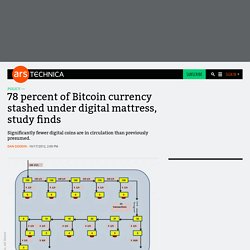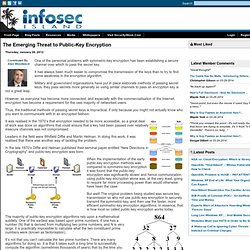

Pay Another Way: Bitcoin. At WordPress.com, our mission is making publishing democratic — accessible and easy for anyone, anywhere.

And while anyone can start a free blog here, not everyone can access upgrades (like going ad-free or enabling custom design) because of limits on traditional payment networks. Today, that changes: you can now buy WordPress.com upgrades with bitcoins. PayPal alone blocks access from over 60 countries, and many credit card companies have similar restrictions. Some are blocked for political reasons, some because of higher fraud rates, and some for other financial reasons. Whatever the reason, we don’t think an individual blogger from Haiti, Ethiopia, or Kenya should have diminished access to the blogosphere because of payment issues they can’t control. Bitcoin is a digital currency that enables instant payments over the internet.
Bitcoin payment interface If you’re already using Bitcoin you’ll find this payment method even easier than paying by credit card. Common Questions Zero! 3 Years in, Bitcoin Digital Money Gains Momentum. Cowrie shells, strips of leather, huge stone discs, decorated rectangles of paper.

They all share something in common: at one time, people used them as currency. In 2009, when Bitcoin went live, ones and zeros were added to the list. And like each new format that preceded it, this digital currency has changed a few of money's core concepts, including who controls it and how and where it gets spent. Nowadays Bitcoin adopters are providing some clues about the benefits of a decentralized, anonymous, digital currency. For instance, independent merchants use it to receive online payments directly from customers, WikiLeaks uses it to dodge financial barricades, and drug users use Bitcoin to shop anonymously on the Internet's black market.
"'It's a challenging project, but it's one that's going to change the world. Bitcoin: Monetarists Anonymous. Bitcoin Foundation Launches To Drive Bitcoin's Advancement. 78 percent of Bitcoin currency stashed under digital mattress, study finds. More than three-quarters of the digital coins in the Bitcoin digital currency scheme aren't circulating because they remain dormant in user accounts that have never participated in outgoing transactions, a recently published study has found.

The figure translates to more than 7.019 million BTCs, the term used to denote a single coin under the digital currency, which uses strong cryptography and peer-to-peer networking to enable anonymous payments among parties who don't necessarily know or trust each other. Based on exchange rates listed on Mt.Gox—the most widely used Bitcoin exchange—the coins have a value of more than $82.87 million.
On May 13, the date the researchers analyzed their data, there were slightly more than 9 million BTCs in existence. Mathematician Dorit Ron and Adi Shamir (the "S" in the widely used RSA cryptography scheme) arrived at that finding by downloading the entire Bitcoin history and following the trail of some 180,000 transactions. Bitcoin: The Cryptoanarchists’ Answer to Cash. Illustration: Harry Campbell There's nothing like a dollar bill for paying a stripper.

Anonymous, yet highly personal—wherever you use it, that dollar will fit the occasion. Purveyors of Internet smut, after years of hiding charges on credit cards, or just giving it away for free, recently found their own version of the dollar—a new digital currency called Bitcoin. You’ll know it when you see it (strippers who accept tips in bitcoins advertise their account addresses right on their bodies). And more important, if you pay with it, no one needs to know. In the long run, a system like this, which restores privacy to electronic payments, could do more than just put the sneak back into the peek.
You may have heard about Bitcoin last year, when the digital currency was briefly a major media story and speculators rushed to cash in on the rising value of bitcoins. May and his guests looked forward to everything those governments feared. The Emerging Threat to Public-Key Encryption. One of the perennial problems with symmetric-key encryption has been establishing a secure channel over which to pass the secret key.

It has always been much easier to compromise the transmission of the keys than to try to find some weakness in the encryption algorithm. Military and government organisations have put in place elaborate methods of passing secret keys: they pass secrets more generally so using similar channels to pass an encryption key is not a great leap. However, as everyone has become more connected, and especially with the commercialisation of the Internet, encryption has become a requirement for the vast majority of networked users.
Thus, the traditional methods of passing secret keys is impractical, if only because you might not actually know who you want to communicate with in an encrypted fashion. Leaders in the field were Whifield Diffie and Martin Helman. But wait! The majority of public-key encryption algorithms rely upon a mathematical subtlety.